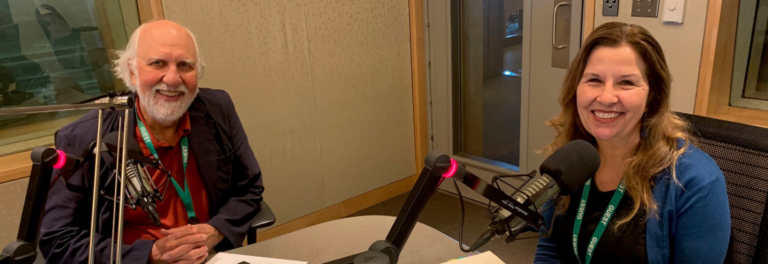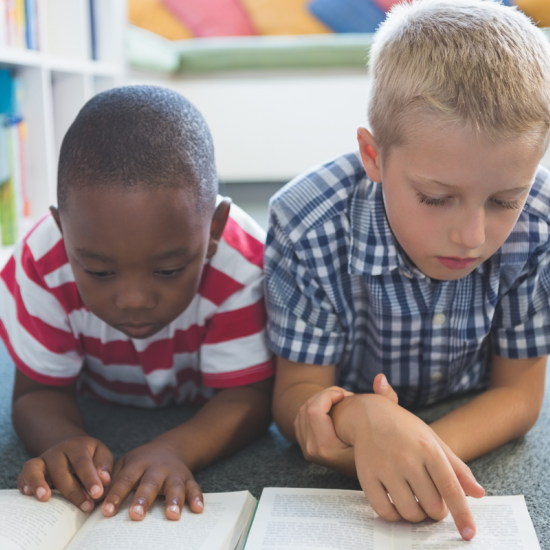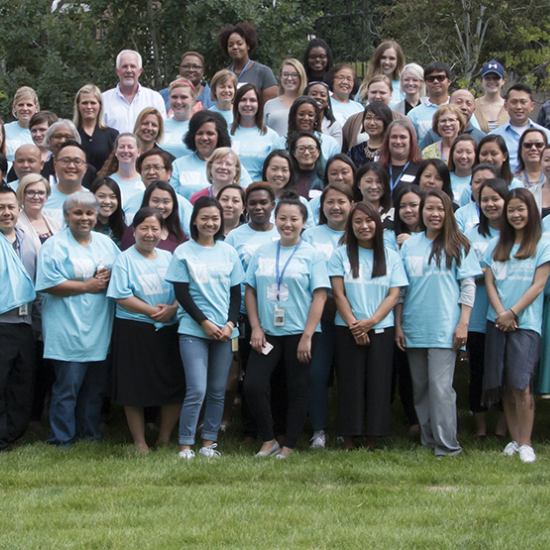Maria Rios knows from personal experience how a strong cultural identity can help foster a sense of belonging. Maria, a Wilder school-based mental health therapist, moved to the United States from Mexico at age 7 and attended school in Woodbury with few students of her background. “I felt different, like I never fit in,” Maria says.
Then Maria took classes on Chicano studies in college. By learning about the history, culture and experience of Mexican Americans, she developed a stronger self-identity. “If we have the opportunity to know who we are, it’s like giving us water to grow,” she says.
Now Maria is helping elementary students of Latinx descent grow and find strength in their cultural heritage. Maria, who who is based at Paul and Sheila Wellstone Elementary, is working with Matt Sebold, a school-based mental health therapist at Riverview Westside School of Excellence, to help their Latinx clients explore their cultural heritage and support their mental wellness. “It’s about everyone coming together and learning about who they are—with a mental health perspective,” Maria says.
Culture and Mental Health Come Together to Help Kids Grow
During the 2018-19 school year, Matt and Maria organized cultural events to help students learn about their cultural backgrounds. Most recently, students took part in a scavenger hunt that took them to culturally relevant sites on Saint Paul’s West Side, which has long been home to Latinx families and businesses.
In early spring 2019, students learned about relationships through an event that focused on indigenous groups in Latin America. They discussed the Mayan-inspired poem “In La’Kech:” You are my other me./ If I do harm to you/ I do harm to myself./ If I love and respect you,/ I love and respect myself. Students then wove two identical macramé bracelets, one for themselves and one to give to someone else. “They were invited to give the bracelet either to someone they really love and care about or as a challenge, to give to someone they have a hard time getting along with,” Matt says.
And last fall, Latinx clients and their families met to talk about how Dia de los Muertos, or Day of the Dead, is celebrated in different regions. Students used shoeboxes to create altars, called ofrendas, to honor the memory of loved ones. They talked about friends and family members they had recently lost. “It was a cultural event, and it was exactly what these kids needed to help them process important events in their lives,” Matt says.
Cultural Work a Component Throughout Wilder School-Based Mental Health
Matt and Maria serve students of all cultural backgrounds who need mental health supports to learn, grow and succeed in their schools, but both work in schools with high populations of Latinx students. They see a need for culturally specific mental health services for Latinx youth because the experiences of Latinx students and immigrants are often tied to mental health.
Feelings of disconnect from student’ heritage and culture can lead to loss of identity and purpose, both Matt and Maria say. In addition, Maria says, Latinx communities are stressed and fearful about immigration issues and the current political climate. Students live with a particularly high stress load day after day if they or family members lack documentation. In addition, Latinx students may struggle with isolation and grief from being apart from family members and a familiar language, racial trauma, discriminations, and generational differences among first and subsequent generations of families in the United States.
Along with other mental health supports, strengthening connections to Latinx cultures can help students under stress develop strength and resilience. “This is a place where we can all come together as a community, to grow together and to be confident individuals,” Maria says.
The cultural work Matt and Maria have begun with Latinx students is similar to experiences Wilder school-based therapists provide for African American students in Kofi and Asian American students in Hlub Zoo. The idea behind all the experiences is the same: Students are better able to grow and develop when they have a strong cultural identity. “We’re all cultural beings, and we can draw a lot of strength from our cultural backgrounds,” Matt says.
As it is often said: “La cultura cura,” which means “culture heals.”
Photo: Students and Wilder school-based mental health therapists went on a field trip to visit culturally relevant sites on the West Side of Saint Paul.
“This is a place where we can all come together as a community, to grow together and to be confident individuals.”




